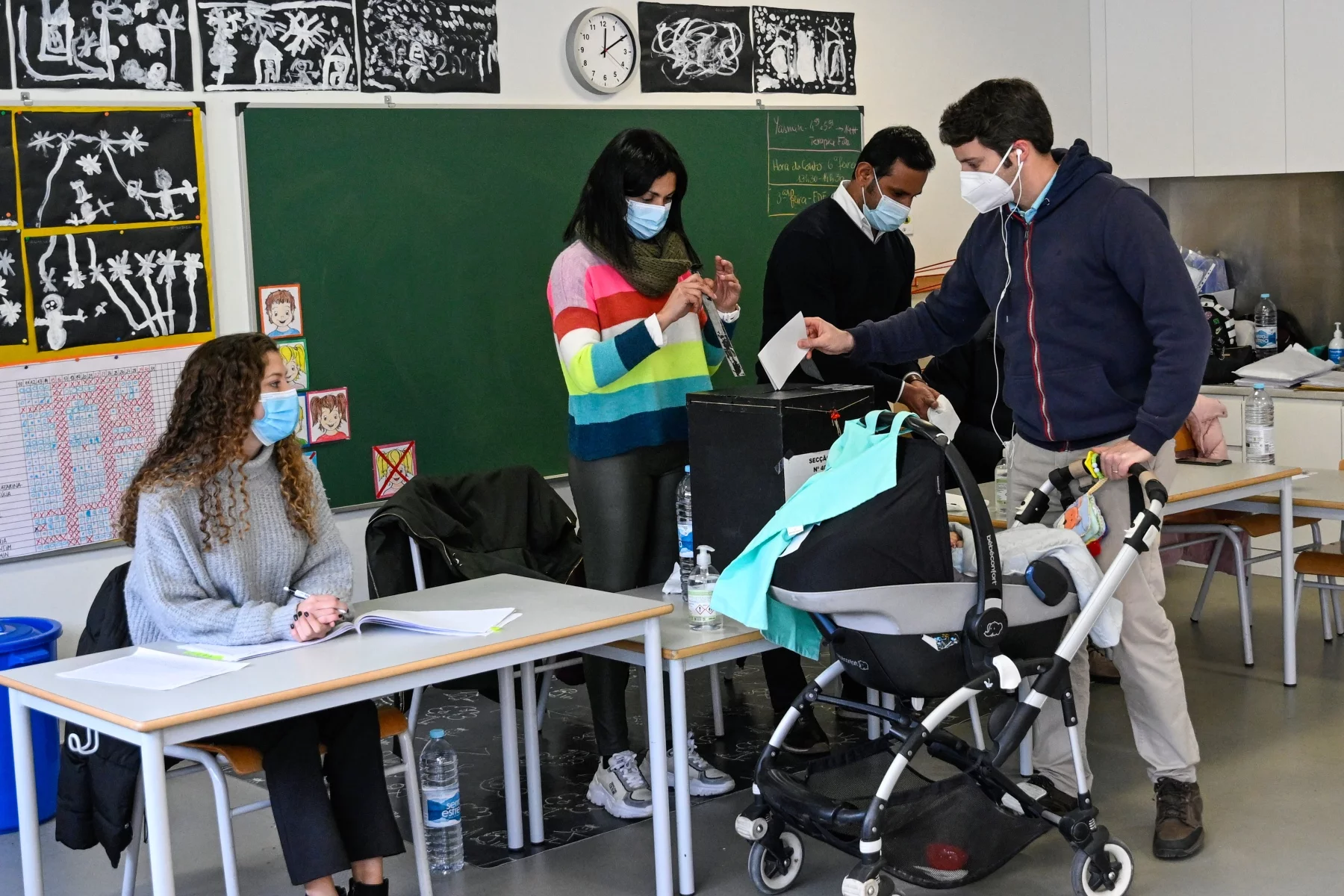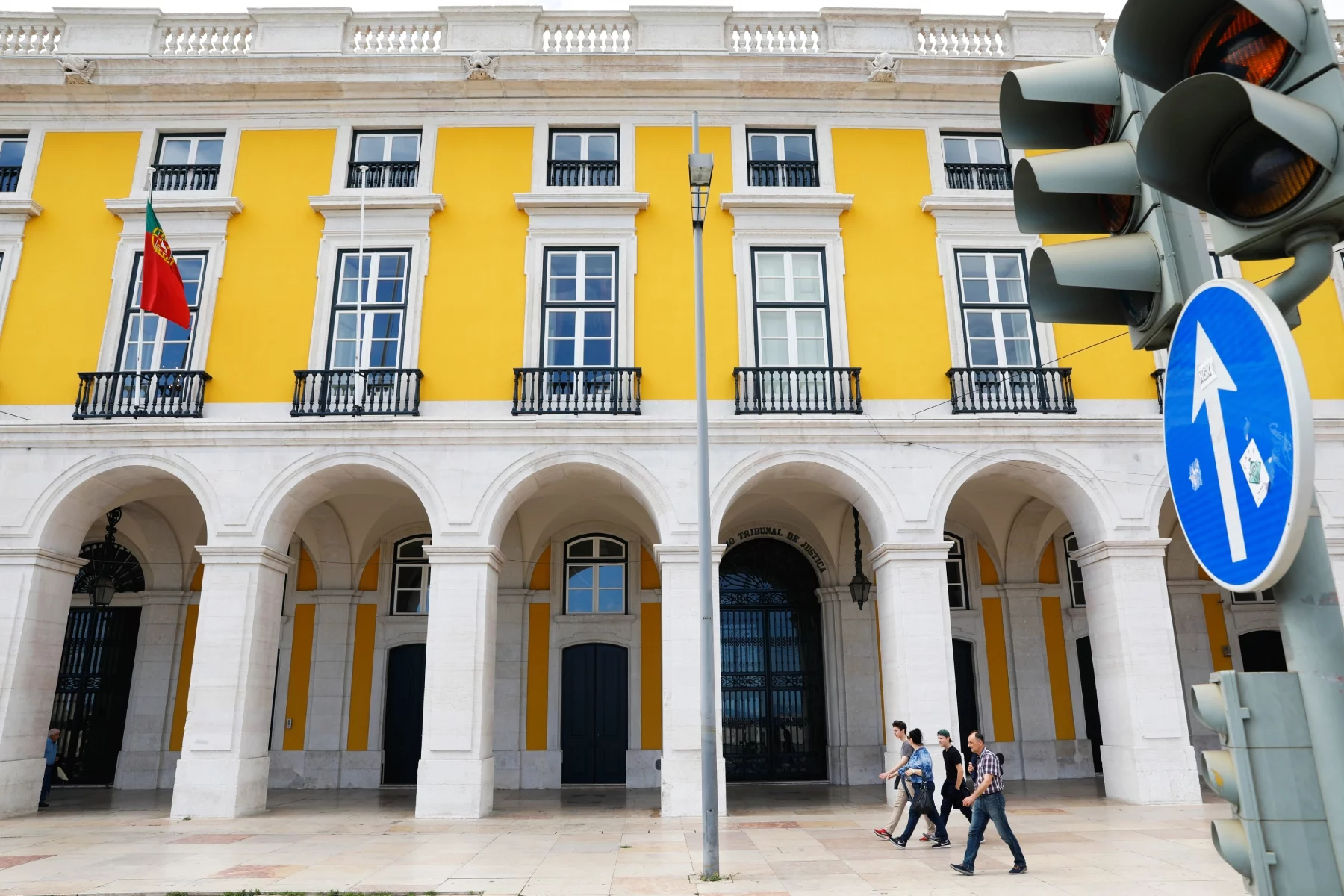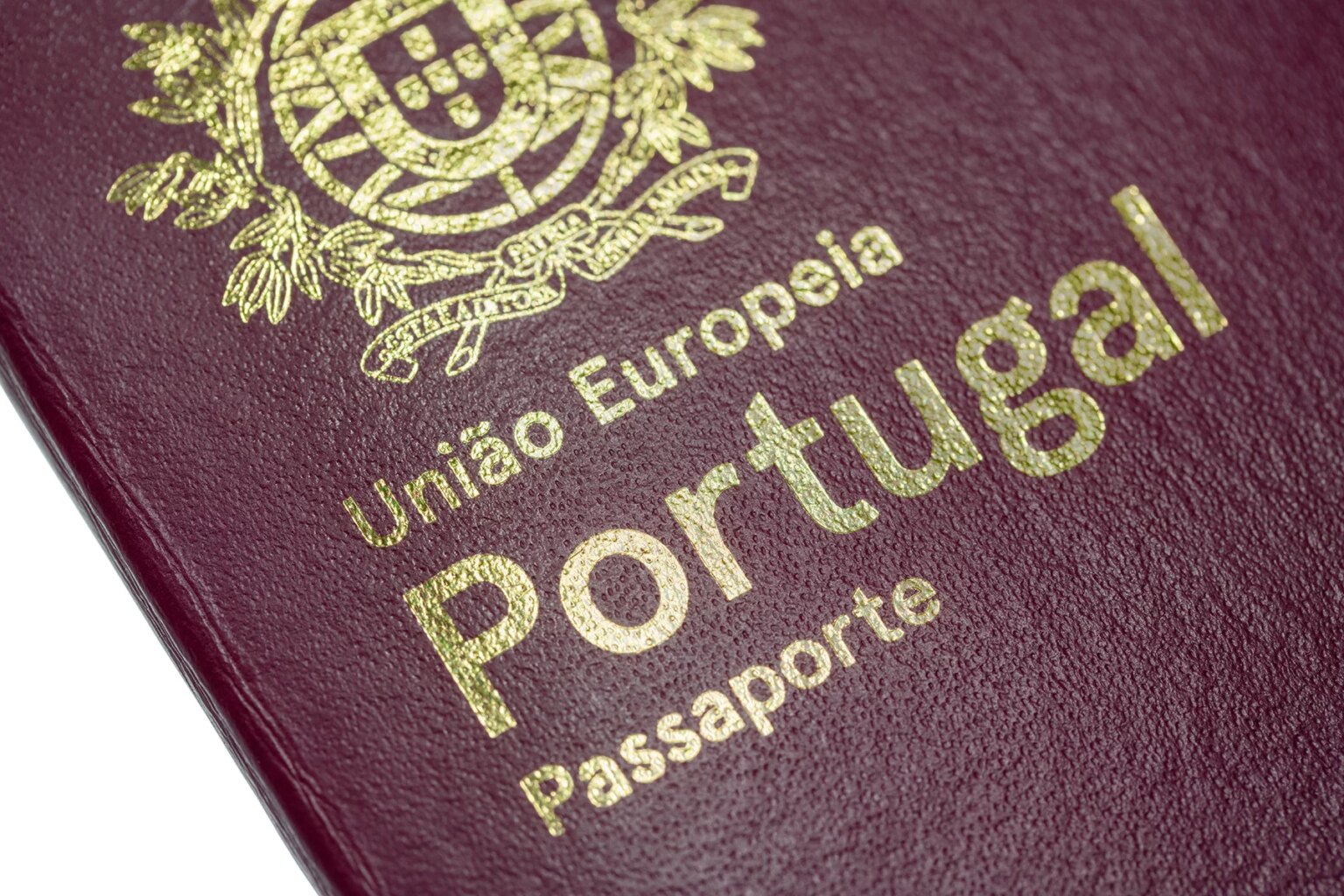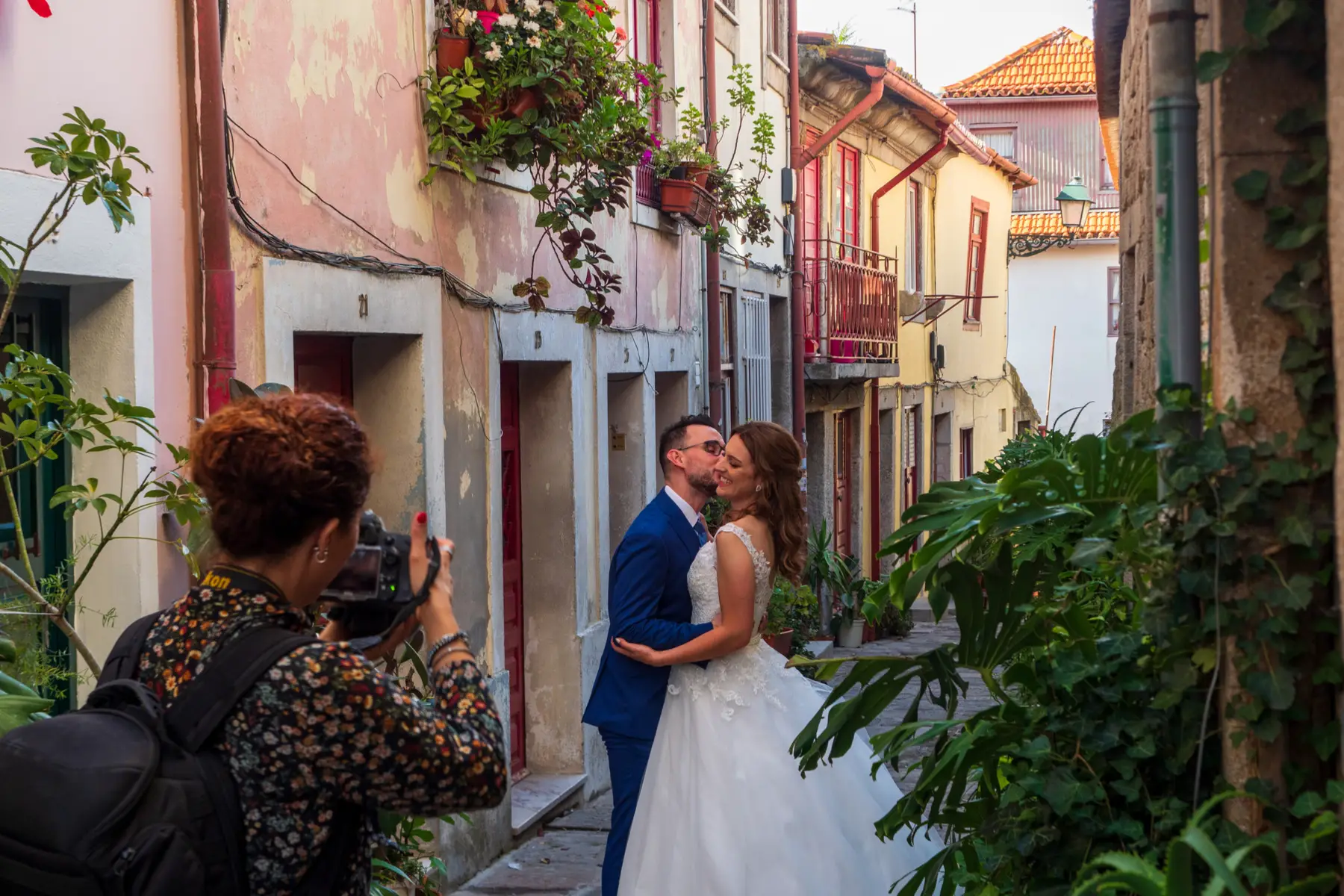If you’ve lived in Portugal long-term on a visa or permit, you can apply for permanent residence and eventually Portuguese citizenship. Conditions vary depending on your personal situation and where you come from. Although some can claim citizenship automatically, most foreigners need to fulfill a residency requirement which can be anything up to five years.
Find out how and when you might be able to apply for Portuguese citizenship by reading the following sections:
- Citizenship in Portugal
- Citizenship by birth or descent in Portugal
- Portuguese citizenship by naturalization/residence
- Citizenship by marriage in Portugal
- Portuguese citizenship by adoption
- Citizenship as a resident of a Portuguese overseas territory
- Portuguese citizenship through investment
- Exceptions and special cases for Portuguese citizenship
- Citizenship test in Portugal
- Passports in Portugal
- Dual nationality in Portugal
- Losing or renouncing Portuguese citizenship
- Citizenship appeals and complaints in Portugal
- Useful resources
Lamares, Capela & Associados
Lamares, Capela & Associados is a law firm specializing in immigration and citizenship in Portugal. As well as providing expertise on visas, residency, permits, and Portuguese nationality, they advise on companies, real estate, and more. Get in touch today and find out how Lamares, Capela & Associados can help you make your life in Portugal a success.
Citizenship in Portugal
Portuguese citizenship law comes from article 4 of the fundamental principles of the Constitution of Portugal. There have been several legal developments since, most notably the 1981 Nationality Law, which eased the jus sanguinis (descent) and restricted the jus soli (birthplace) routes to citizenship.
The main paths to citizenship in Portugal today are through:
- Descent or birth (e.g., Sephardic Jewish ancestry)
- Naturalization of foreign residents (e.g., five years of residency)
- Marriage or de facto union
- Investment
Citizenship is an alternative to permanent residence in Portugal. While there are similarities between the two, Portuguese citizenship comes with additional benefits like the right to vote in all elections and the right to a Portuguese passport and citizen card (in Portuguese).
However, becoming a citizen is more difficult, and you may have to give up your existing citizenship if your home country doesn’t allow dual nationality.

In 2022, roughly 46,230 foreigners acquired Portuguese nationality. Of those, 20,844 resided in Portugal, and 25,385 lived abroad. New citizens originated mainly from:
- Israel (35.5%)
- Brazil (24.5%)
- Cape Verde (5.7%)
- Ukraine (3.9%)
- Angola (3.9%)
The Institute of Registries and Notaries (Instituto dos Registos e do Nototiado – IRN), part of the Ministry of Justice, processes citizenship applications in Portugal.
If you want to find out more about getting Portuguese citizenship in your specific situation, it’s worth enlisting the help of legal professionals. For example, law firms such as Lamares, Capela & Associados provide tailored expertise on immigration and citizenship matters.
Citizenship by birth or descent in Portugal
You automatically receive Portuguese citizenship if you have Portuguese parents or grandparents or, in certain cases, if you were born in Portugal yourself. To be eligible, at least one of the following needs to apply to you:
- You have at least one Portuguese parent who was a Portuguese national at the time of your birth, irrespective of where you were born.
- You have a Portuguese grandparent who has retained their nationality, as long as you have been living in Portugal for at least three years and are connected to the Portuguese community, including knowing the Portuguese language.
- You were born in Portugal to foreign parents and at least one of them has been living in Portugal for at least five years (since 1981), two years (since 2018), or one year (since 2020) at the time of your birth.
- You were born in Portugal to foreign parents, are 18 or above, and have lived in Portugal for five years.
- You are aged under 18 or have a serious disability and at least one of your parents became a Portuguese national after you were born, as long as you have been living in Portugal for at least five years.
How to apply for citizenship through descent or birth
If you are born in Portugal to a Portuguese parent, you won’t need to apply for citizenship. You will automatically become a Portuguese citizen. Otherwise, you can apply for citizenship through birth or descent in Portugal at any time through either:
- One of the IRN offices
- The National Support Center for the Integration of Migrants (CNAIM) in Lisbon or Porto
- A Citizen Shop in Portugal
- The Portuguese embassy or consulate (in Portuguese) in your home country
The documentation you will need to provide depends on the route you are applying through but may include:
- Your own birth certificate
- Birth certificates of your parents or grandparents
- Proof of relationship to parents or grandparents, if you cannot provide a birth certificate
- Proof of nationality of parents or grandparents
- Evidence that you meet any residency requirements, for example, tax records
- Evidence of integration into the Portuguese community, for example, a language certificate
- A signed declaration of Portuguese nationality or letter addressed to the Ministry of Justice
The application is free if you are applying through descent (in other words, you have Portuguese parents or grandparents). If you apply through birth (born in Portugal), the cost is €250. You will need to pay €200 if you are under 18 or disabled and applying because a parent became a Portuguese national after you were born.
Portuguese citizenship by naturalization/residence
One of the most common ways for foreign residents to gain Portuguese citizenship is through the naturalization route (link in Portuguese – bear in mind that since 2018, you no longer need to have been residing in Portugal for six years to apply through naturalization). You may begin the process once you have lived in Portugal for at least five years (previously six until 2018) and be sufficiently integrated into the Portuguese community. Chiefly, this means knowledge of the Portuguese language. Typically, the five years that count are the most recent five years. However, it is possible to make an application if you have lived in Portugal for at least five of the past 15 years.
How to apply for citizenship through naturalization/residence
You can apply for Portuguese citizenship through naturalization via:
- An IRN office
- The National Support Center for the Integration of Migrants (CNAIM) in Lisbon or Porto
- A Citizen Shop in Portugal
- The Portuguese embassy or consulate (in Portuguese) in your home country
The documentation you need to provide includes:
- Current passport or travel ID
- Birth certificate
- Proof of residence in Portugal for the required time, for example, a current residence permit
- Evidence of knowledge of the Portuguese language to at least A2 on the CEFR scale
- Criminal record certificate
- Letter addressed to the Ministry of Justice requesting Portuguese citizenship
The application fee for citizenship by naturalization is €250.
Citizenship by marriage in Portugal
You can apply for Portuguese citizenship without fulfilling the five-year residency requirement if you are married to or in a de facto union (link in Portuguese) with a Portuguese national. You must have been married or in this union for at least three years. This citizenship option doesn’t require any residence period in Portugal. So, for example, you could marry a Portuguese citizen outside Portugal and live abroad with them for three years. However, you will still need to demonstrate some connection to the Portuguese community – for example, knowledge of the Portuguese language.
The application process is similar as it is for naturalization applications. You will need to provide a marriage certificate or proof of de facto union. The cost for the application is €250.
Portuguese citizenship by adoption
Children from abroad aged under 18 who have been legally adopted by a Portuguese citizen can apply for citizenship immediately. You will need to demonstrate some connection to the Portuguese community. This could be, for example, proficiency in the Portuguese language or enrolment in education in Portugal.

The application process is similar to other types in terms of where you apply. You will need to provide ID, adoption papers, and evidence of your connection to Portugal. If the adoption took place after October 8, 1981 (link in Portuguese), the application is free. If you were adopted before this date (link in Portuguese), there is a fee of €250.
Citizenship as a resident of a Portuguese overseas territory
You can claim Portuguese citizenship in certain cases if you are a member of a Portuguese community living in one of the following former Portuguese colonies:
- Angola
- Cabo Verde
- Portuguese India
- Guinea-Bissau
- East Timor
- Macao
- Mozambique
- São Tomé and Príncipe
To do this, you will need to prove that you are either a descendant of Portuguese nationals or are part of a community that practices Portuguese values and traditions. Applications are through the standard routes and cost €250.
Portuguese citizenship through investment
Those willing and able to make a significant investment in Portugal can apply for citizenship via the Golden Visa route. In theory, to obtain this visa, you need to have been a resident in Portugal for five years. However, in practice, you only need to have been living in Portugal for seven days per year for five consecutive years. You also need to invest between €250,000 and €1.5 million in Portugal and be able to demonstrate knowledge of the Portuguese language to at least A2 level.
You can follow standard procedure for application at the cost of €250. You must prove that you have been a Portuguese resident through the Golden Visa program for at least five years.
Exceptions and special cases for Portuguese citizenship
Certain groups can apply for fast-track Portuguese citizenship under special circumstances. These are:
- Descendants of Portuguese Sephardic Jews – anyone who can prove that they belong to a Sephardic Jewish community and are of Portuguese Sephardic Jewish origin (link in Portuguese)
- Those who have provided services to the Portuguese state or community – for example, provided military service for Portugal (link in Portuguese)
Both of these groups can apply for citizenship in Portugal without any residency period. The cost for applications is €250. In addition, certain groups of former Portuguese citizens can reacquire Portuguese nationality. These include (links in Portuguese):
- Individuals who lost their citizenship through the will of a legal representative when they were children or had a serious disability
- Individuals who have lost their citizenship but never acquired another nationality
- Women who lost their citizenship through marriage to a foreign national; before the Portuguese Nationality Act of 1981
- Those who lost their citizenship by taking another nationality before 1981 but who now want to retake Portuguese citizenship
These applications are free apart from for disabled applicants applying due to losing citizenship through the will of a legal representative (€175) and those who lost citizenship but never acquired another nationality (€250).
Citizenship test in Portugal
There is no citizenship test in Portugal. However, many citizenship applicants must take and pass a language test to prove they can understand Portuguese to A2 level. This Portuguese language certificate is called the Certificado Inicial de Português Língua Estrangeira (CIPLE). The exam to get a CIPLE certificate lasts for two hours and consists of reading and writing (45%), oral comprehension (30%), and oral expression (25%).

You can take the test at an approved examination center (in Portuguese) for around €70. To pass, you must achieve an overall score of 55% or above.
Passports in Portugal
Once you take Portuguese citizenship, you are eligible for a Portuguese passport, ranked 14th on Arton Capital’s Global Passport Index and allows access to 167 countries with either no or minimal visa restrictions.
You can apply for a Portuguese passport at either:
- Instituto dos Registos e do Notariado (IRN) offices
- Autonomous Regional Governments of Madeira and Azores
- Passport Shops at Lisbon and Porto Airports
- A Portuguese embassy or consulate (in Portuguese) in your area of residence (if you are abroad)
The standard cost of applying in Portugal is €65 for an adult passport, although it is more expensive if applying abroad or using a fast-track service.
Dual nationality in Portugal
Portugal allows dual citizenship, meaning that foreigners can gain Portuguese nationality without having to give up the citizenship of their home country. However, you will first need to check with your home country if it also permits dual citizenship. In some cases, your home country may require you to renounce your citizenship before allowing you to take Portuguese nationality.
Losing or renouncing Portuguese citizenship
As Portugal allows dual citizenship, you can only lose your Portuguese citizenship if you commit a serious crime or are involved in an act of terrorism. However, such cases of citizens being stripped of Portuguese nationality are rare, and this cannot happen to you if doing so will leave you stateless. This means that only dual citizens can lose their Portuguese nationality involuntarily.
You can renounce your Portuguese citizenship voluntarily if you take up another citizenship and either need or want to give up being a Portuguese national. To do so, you should contact either the IRN (link in Portuguese) or the Portuguese embassy or consulate (in Portuguese) in the country where you live.
Citizenship appeals and complaints in Portugal
There is no appeals process if your application for Portuguese citizenship is turned down. You can contact the IRN or the Portuguese embassy or consulate (in Portuguese) in your home country to ask them to reconsider their decision. If you want to take the matter further, you will need to go through the Portuguese courts. This can be a costly and lengthy process, so you’ll need to find good legal representation.
To make a general complaint about how your citizenship application was handled, contact the IRN.
Useful resources
- Institute of Registries and Notaries (Instituto dos Registos e do Nototiado – IRN) – deals with citizenship applications and issues citizen cards in Portugal
- Ministry of Justice (Ministério da Justiça) – government ministry responsible for citizenship in Portugal (link in Portuguese)
- ePortugal – government portal with information on citizenship and nationality







